All around the world, women and girls are making enormous contributions to climate action. They are vital agents of change for the planet, but their voices are often missing from the decision-making table.
In the month of March, Greenpeace had highlighted the voices of diverse women who are leading on climate. These are just 10 women from the Asia Pacific region who are raising their voices to help shape the climate conversation and to heal our planet.
Ai Ji
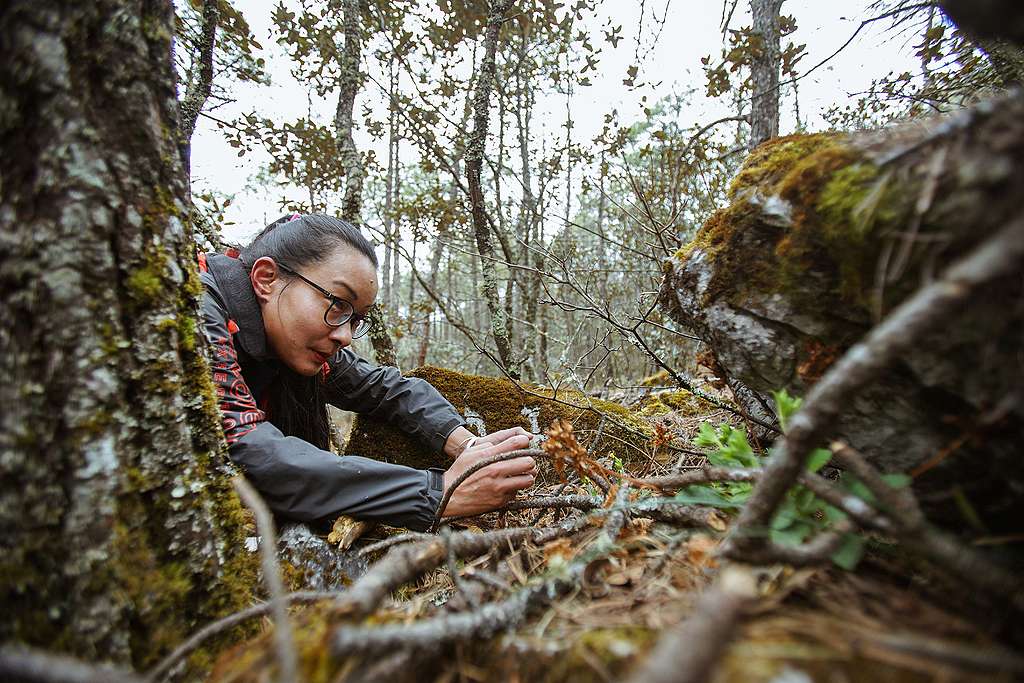
"I'm a Nakhi, native to the foothills around Lijiang, where I was born and raised. Lijiang sits among the Himalaya and Hengduan mountain ranges in a region that houses the most biodiversity of anywhere in China. It's a haven of alpine plants, scattered with wild orchids, rhododendron, and innumerable precious plant life. They are remarkably sensitive to the impact of climate change. As the snow line moves higher and higher up the mountains and glaciers melt, we may see the extinction of more and more species, including those that are still undiscovered or understudied. There are many species we still don't understand but nonetheless do know that they are on the brink of extinction.
I was a journalist in traditional media for more than ten years. Now, I use social media to record and exhibit beautiful but fragile plant life to get more people to pay attention to alpine plants, as well as climate change and its impact on biodiversity. We quickly find joy in the gifts of nature, but can also easily ignore the step-by-step progression of this crisis.
Taking action on climate change means each person gets involved. So far, we haven't yet done enough."
Ai Ji is a Nakhi conservationist using documentation and public awareness activism to highlight the fragile beauty of her home, Lijiang, as well as climate change and its impact on biodiversity.
Áine Kelly-Costello
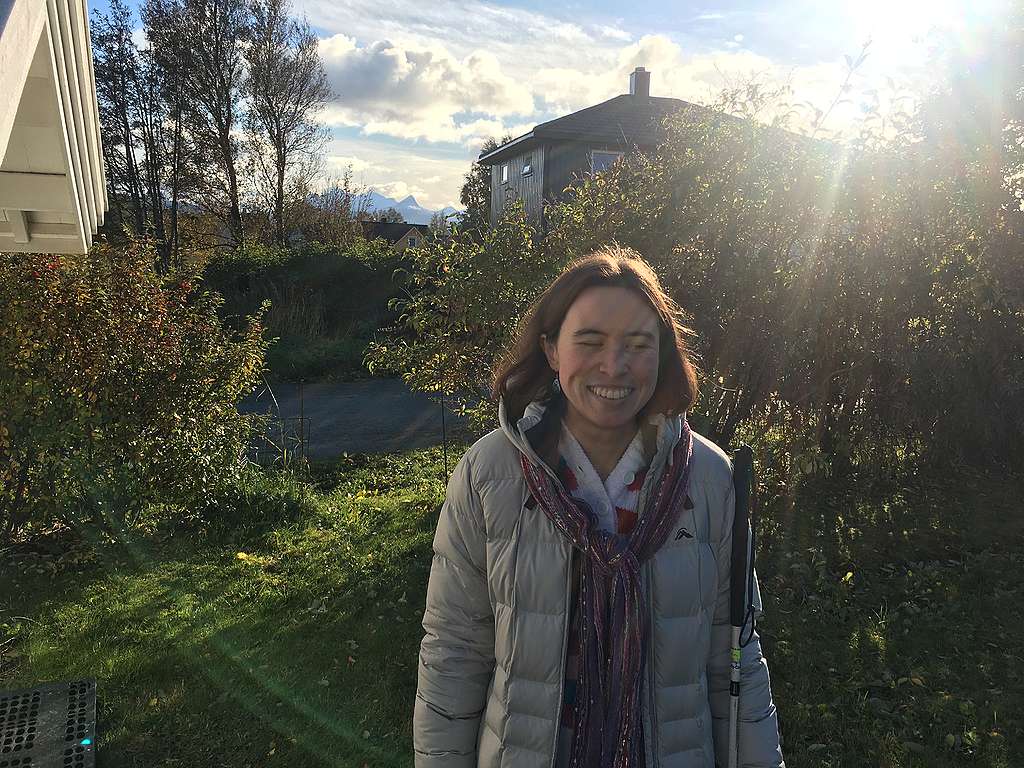
"Politicians, journalists and the climate movement still barely ever talk about the disproportionate ways in which climate breakdown and responses to it are leaving disabled people behind. Multiple layers of marginalisation, including indigenous status and gender, compound the harms many disabled communities face. Often if we do get mentioned, disabled people are relegated to a list of "vulnerable groups", taking away our agency. I'm determined to help rewrite that story.
Disabled people are change agents well-adapted to a world not created with us in mind. We have lived experience and expertise which is integral to shaping an accessible, inclusive, safe and climate-resilient future.
I'd love for environmental and climate campaigners to learn about how eco ableism can show up, and figure out how their organisations can start to dismantle it. That includes looking internally at organisational systems, processes and practices. Engaging with disabled members and consultants to develop and embed accessibility and inclusion guidance and training is crucial.
Many disabled folks want to be more environmentally conscious and play their part in taking climate action. Still, a legacy of non-engagement and eco ableism has created distrust between many disabled communities and environmental and climate organisations.
Building and restoring credibility, trust and relationships will take time. But if anything will keep me going, it's hope, that climate movements *can* make shifts to be intersectionally centring the voices of those most marginalised, including disabled people, and campaigning in solidarity with us for a future of care and flourishing for both planet and people."
Áine Kelly-Costello (she/they) is a proudly multiply disabled climate campaigner advocating in Aotearoa New Zealand & internationally. They are passionate about furthering climate justice and creating an accessible, inclusive world, especially by harnessing the perspectives of disabled people. They are newly exploring identifying as genderqueer & want to shout out to all the trans & gender non-conforming folks who bear the brunt of transphobia & gender inequities.
Explore further:
Eco Ableism and the Climate Movement (Catrina Randall, Young Friends of the Earth Scotland)
Reading list on disability justice and climate justice (compiled by SustainedAbility – scroll down page for list)
The Missing Conversation about Disabled Leadership in Climate Justice (Áine Kelly-Costello, Stuff)
Archana Soreng
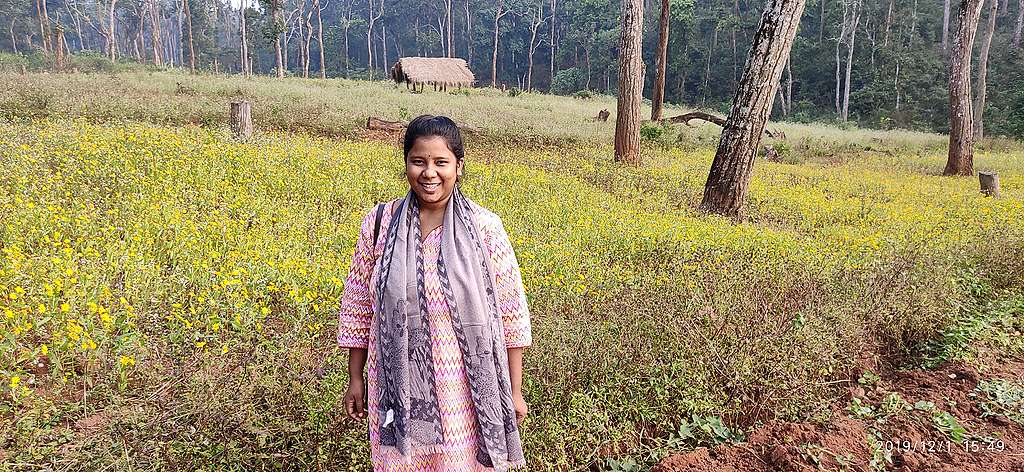
"In my Khadia tribe, my surname 'Soreng' means 'rock'. Many indigenous communities have surnames related to nature showing how intertwined they are with the natural world.
My grandfather was a pioneer of a community-led forest protection in our village in Odisha's Sundergarh district. He was a staunch believer that we should have a sustainable relationship with nature, only then can there be sustainable living. My father was an advocate of indigenous healthcare.
It was my parents who said to me that: "If you really want to contribute back to society, you need to enter into policy making". Through my studies in humanities and environmental science, I realized that it is important for indigenous communities to write and speak for ourselves, and to share our perspective and worldview through our own lens. It is important to raise our voice, because our voice matters.
My father's death in 2017 triggered in me an urgent need to learn traditional practices and their contribution towards climate action and biodiversity conservation, and to document them so that upcoming generations will know about these practices. Through the years I have interacted with numerous tribal communities in the state. Every tribe is unique but all their cultures are sustainable and respectfully intertwined with nature.
Climate change affects all of us but not equally. Tribal communities are the ones who have been in the frontlines of protecting the forest and nature through their way of living, traditional knowledge and practices, even at the cost of their lives, yet they are the ones who are most adversely affected due to the impact of the Climate Crisis. We need to make tribal communities an integral part of the decision making process of Climate Action."
Archana Soreng, a member of the Khadia tribe in Odisha, India, and a member of UN Secretary General's Youth Advisory Group on Climate Change
Eunbin Kang
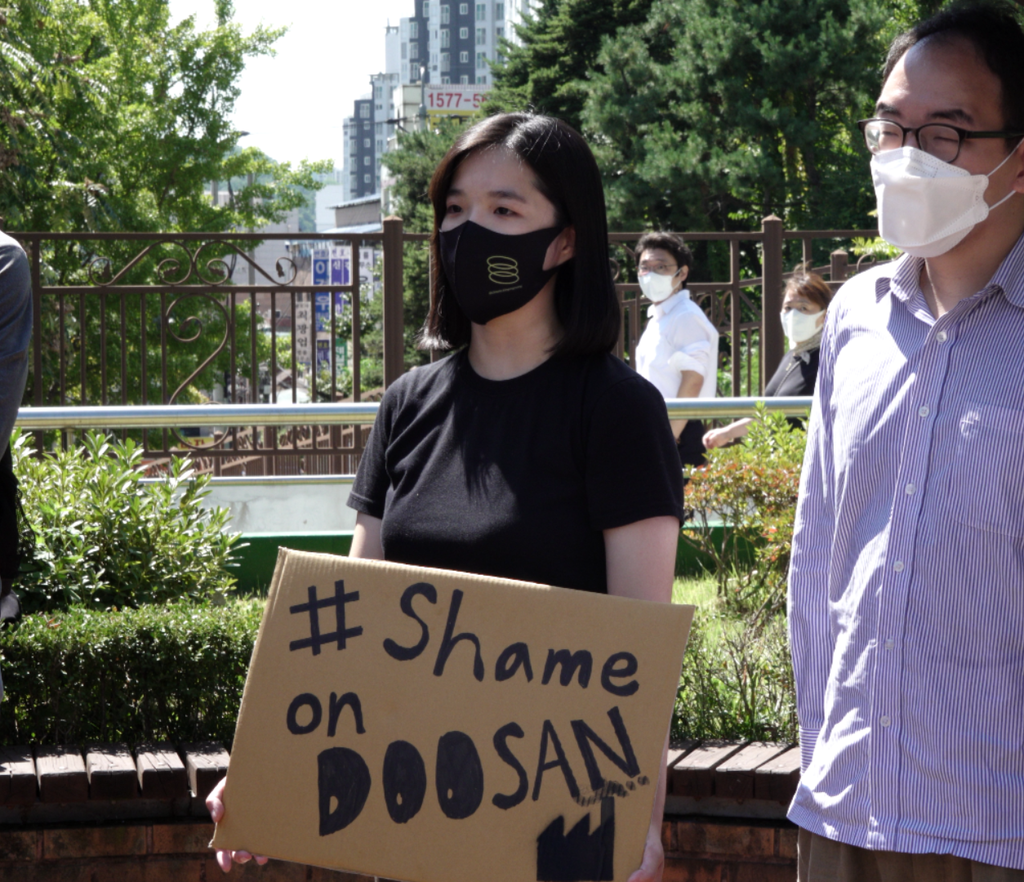
"I am Eunbin Kang, living in Seoul, South Korea. I was interested in the Korean War and division issues, and I studied Political Science and Diplomacy at university. It's been my all-time routine to be vigilant about waste management and meat-eating issues. In September 2019, I took part in the Climate Crisis Emergency Action Parade in Seoul. The slogan "Climate Crisis, Not Global Warming" touched me. The word 'climate crisis' was a wake up call that the reality in front of us is a crisis that ordinary people must work through together, not just experts or people in power
In 2020, I started the climate movement in Youth Climate Emergency Action. In 2021, we took direct action against Doosan Heavy Industries & Construction, a representative Korean company that is building coal power plants in various parts of Asia. Currently, we are undergoing trials including a claim for damages of 18.4 million won from Doosan Heavy Industries & Construction. Rather than despair in the face of the climate crisis, we have chosen to stand up and resist those in power.
I remember the saying that our very existence itself gives someone hope and stimulation. I want to continue the climate movement, remembering that hope is within us and that love overcomes everything."
Eunbin Kang, co-founder of the Youth Climate Emergency Action group in South Korea
Hasminah D. Paudac-Tawano
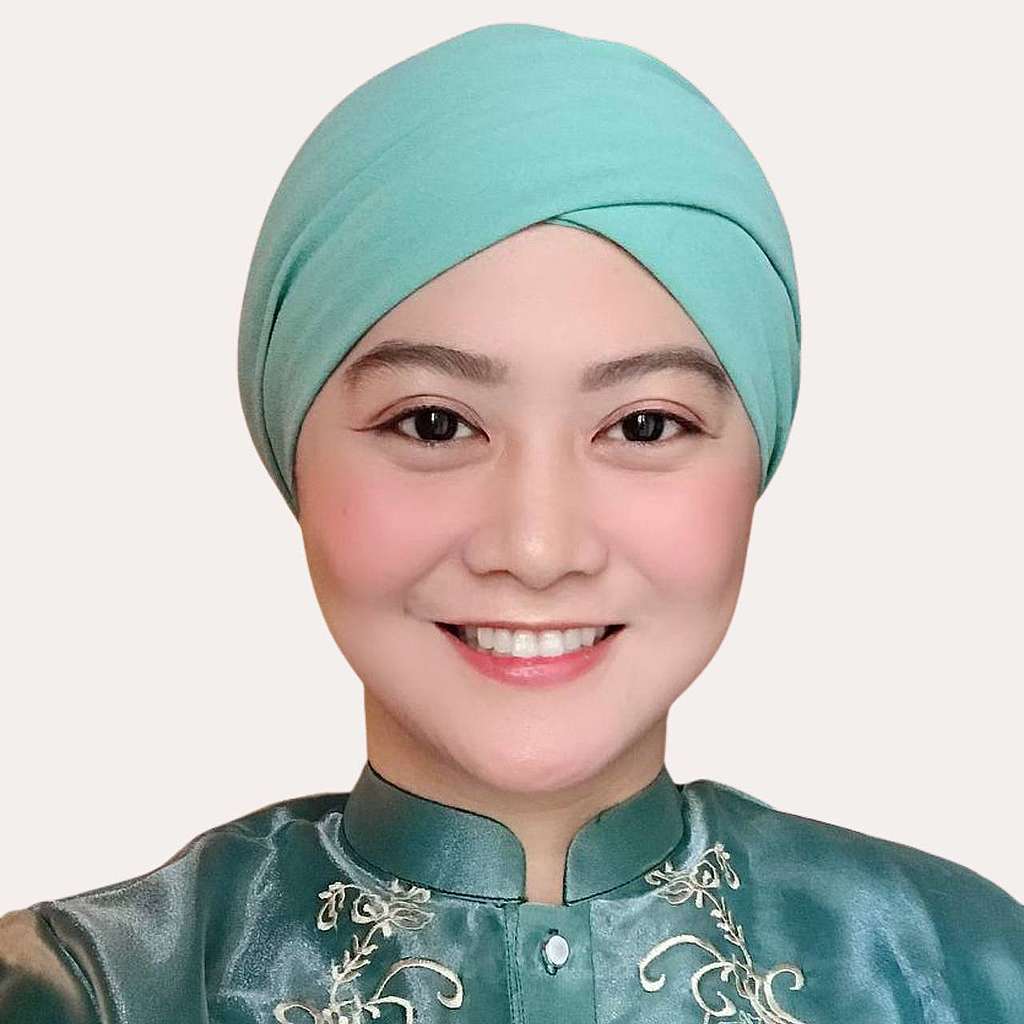
"Growing up, I have always fancied doing public service, inspired by the biographies of our national heroes who fought for our country's independence. I became the first Muslim student President in a very conservative and Catholic-denominated all-girls school. Being woman and relatively young were challenging, given our patriarchal and tribal society. I am a Maranao — a Muslim tribe from a war-torn province, south of Philippines — carving a space in the "imperial" Manila.
In order to be heard and earn "legitimacy," I tread the path of lawyering to earn a voice not only for myself, but for the people I seek to serve and represent-women, children, elderly, indigenous peoples, and other vulnerable sectors. After almost 5 years of honing my skills as a general litigation lawyer in a firm mostly serving corporate clients, I embarked on a journey to realize my dream to serve. Destiny led me to Greenpeace to work with 32 audacious petitioners who sued 47 big coal, oil, gas, and cement companies, a landmark national investigation against multinational corporations that dealt with the cross-cutting issues of climate change and human rights.
Five years working with different communities and vulnerable groups heightened my passion to even look for opportunities to mainstream climate justice with the hope that every Filipino will take the matter seriously and with the same level of urgency as the current pandemic. We cannot just look the other way when it comes to the realities on the ground. We must demand accountability and resist injustice.
While awaiting for the impending release of the final report on our legal action, I hope we have opened up the space and built power for communities to reclaim their rights and take action to achieve a safe climate and a healthy environment. Indeed, there is no such thing as David vs. Goliath if you are fighting for a good cause. And there is no better cause than the cause for the environment and human rights."
Hasminah D. Paudac-Tawano, Legal Advisor, Climate Justice and Liability Program at Greenpeace Southeast Asia (Philippines)
Liu Junyan
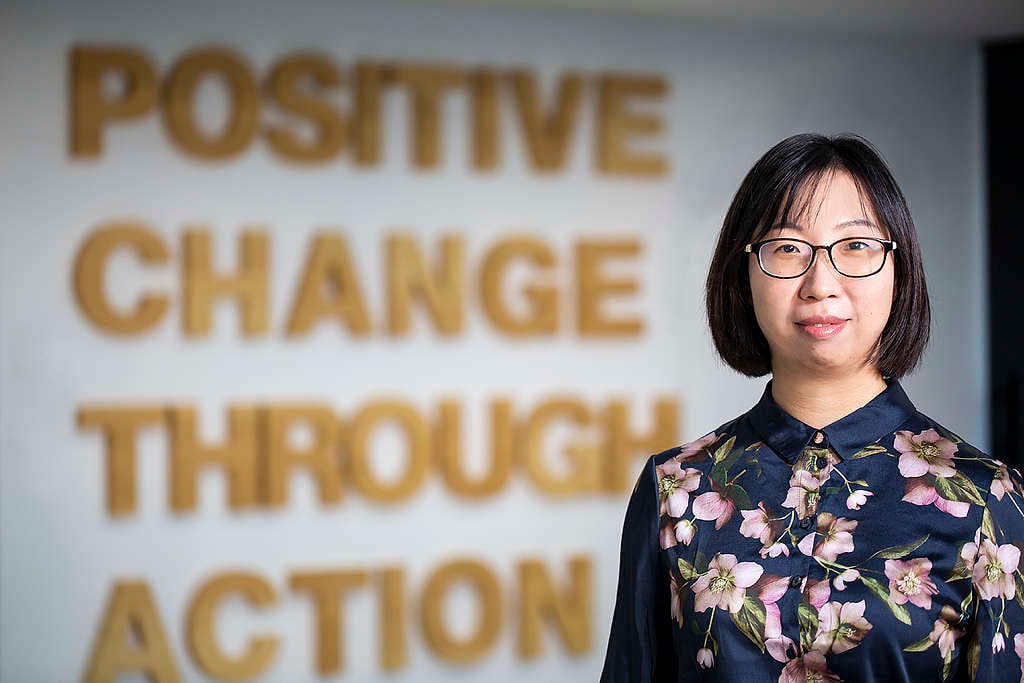
"I joined the Greenpeace Climate and Energy Project in 2017, after receiving my PhD from the Chinese Academy of Social Sciences. As the Program Manager of Climate & Energy (GPEA), I lead the Beijing Office Climate Risk Project and Research Unit where I am committed to making the public and stakeholders aware of climate change and to take active actions.
In 2018, I visited the glaciers in the western plateau of China together with scientists. We observed the catastrophic impact of glacial flooding under the influence of climate change. In 2021, my colleagues and I participated in a post-disaster rescue after the Henan floods due to heavy rains. From what we have witnessed, the climate change crisis is looming. At the same time, we are also noticing that climate change is widening the inequality gap, exposing vulnerable populations to more severe risks.
Climate change is such a grand and complex issue, engulfing a series of crises in politics, economy, health, development, and fairness. Climate crisis is like an abyss. It is incalculable and may even swallow our courage to act."
"The only way to escape the abyss is to look at it, gauge it, sound it out and descend into it."
- Cesare Pavese
Liu Junyan, Programme Manager of Climate & Energy at Greenpeace East Asia
Pua Lay Peng
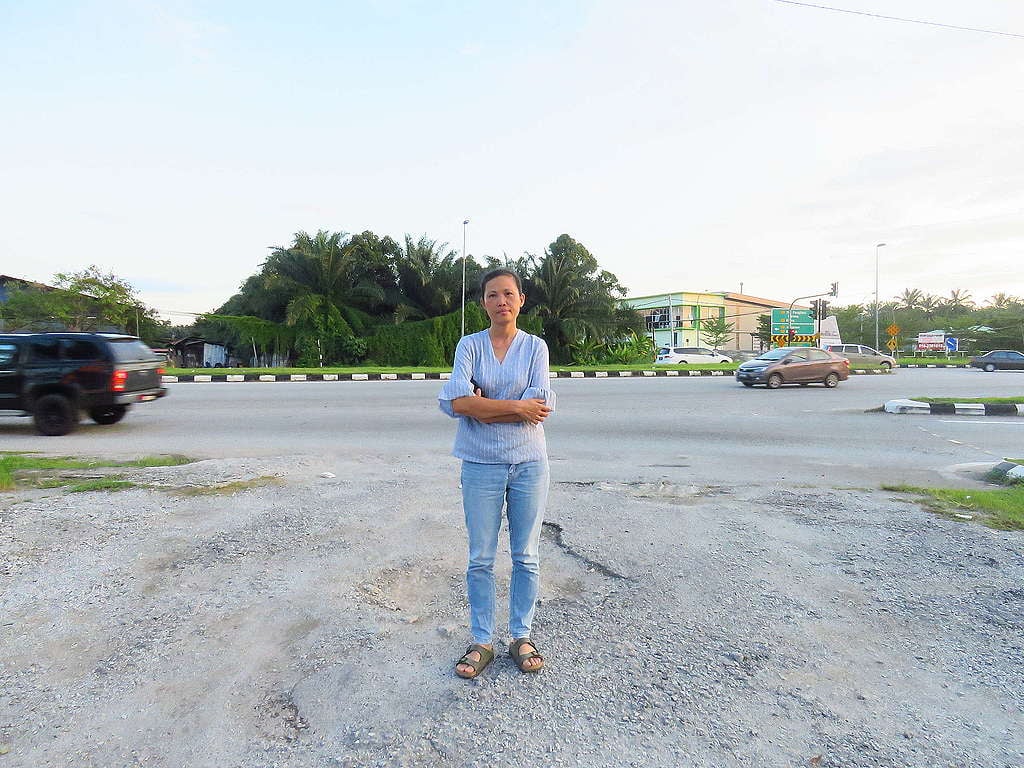
"Pua Lay Peng is a local activist leading a grassroots environmental group called Persatuan Tindakan Alam Sekitar Kuala Langat (Kuala Langat Environmental Action Group) in Malaysia. The group was active in campaigning against the imported plastic waste problem that was affecting their small town, Jenjarom.
In 2018, the global plastic waste trade was disrupted when China banned most plastic waste imports. Southeast Asian countries like Malaysia had picked up the slack, accepting the outpouring of plastic waste from high-income countries that led to a spike in the number of illegal dumpsites and burning facilities in the country.
A chemist, Pua had moved back to Jenjarom where she witnessed the devastating impact that the plastic recycling industry was having on her community. With over 40 illegal plastic factories emitting toxic gases into the air and polluting the local rivers and waterways, they were making people very sick.
Alarmed by the environmental and health impacts of the illegal industries, Pua took action. She led the group as they organised meetings, conducted fieldwork and published reports exposing the plastic problem. They also worked with the authorities to act against the illegal plastic waste trade, leading to the closure of several hundred illegal facilities. Despite receiving death threats, Pua and the group continued with their courageous and relentless efforts, empowering other communities to stand together and fight against environmental pollution."
Sylvia Wu

"My name is Sylvia Wu. As a legal professional, I aspire to use my legal knowledge to bring about positive changes.
In February of 2021, we filed the first climate litigation in Taiwan, Greenpeace East Asia and others v. Ministry of Economic Affairs.. I worked closely with the individual plaintiffs, local NGOs, and our project team to urge the government to be more ambitious in climate change law amendments and to challenge the rigid judicial system.
Climate justice should not be a privilege. It's a fundamental human right. That is also our ultimate goal in the case–to create a path for ordinary people to access climate justice.
One of the biggest challenges we faced was to overcome the procedural barriers in a highly traditional court system like Taiwan's. Moreover, most Taiwanese have never heard of climate litigation or climate justice. Therefore, we endeavored to amplify the influence of our case and to ensure that our plaintiffs' voices got heard while the case was still pending. We collaborated with local environmental law groups to initiate a petition among lawyers advocating for adding citizen suit provision, hold forums allowing more people to understand climate justice, and publish articles.
In addition to climate litigation, I devoted myself to supporting our Distant Water Fishery project. Due to the discriminated-based two-tier employment system, many distant water fishery workers experienced forced labor or human trafficking in the dark ocean. We assessed and developed legal and political advocacies to safeguard their rights and to help them break out from the chains of an unfair system.
The people I have been fighting for are the highlight of my story. What makes me most proud of my work is that I get to stand with them, amplify their voices, and fight together against the flaws in the system."
Sylvia Wu, Legal coordinator at Greenpeace Taiwan
Veronica Cabe
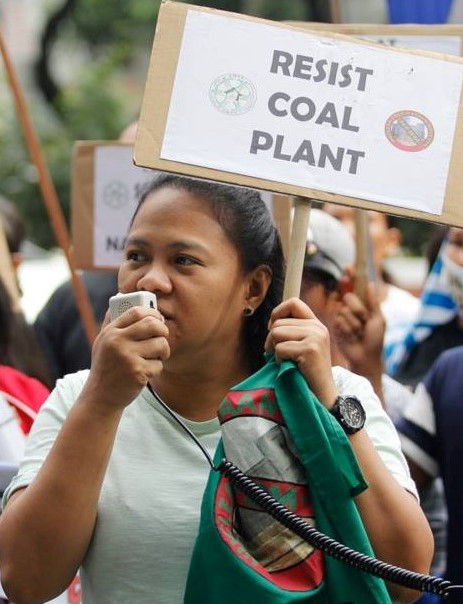
"My activism is sustained by what I've learnt from my experiences while working with communities. Movements are created from the ground up and building a movement is building people power in the process. It is built on values of shared responsibilities as much as a shared leadership. As a community organizer, these lessons have become my core values too. What matters most is supporting and enabling each other to act together so as to achieve our shared vision.
I hope that others would aspire for a better life, not just for survival. That they realize that they have the power to achieve this through persistent collective activism. We must be at the forefront of the struggle and confront the system that makes the people poor and miserable, thus perpetuating injustices. Through our activism we have an opportunity to desconstruct this system that prioritizes profit over the right and welfare of the people and planet. I hope to show that aspiring for a better life and society is nothing short of demanding for a systemic shift.
While we have managed to achieve small victories in the past, the better society that we aspire to is still a long way away. Challenges have been non-stop but the biggest one at this time is the context of the shrinking democratic space and the growing impunity in many countries. Places like in the Philippines where activism is being criminalized.
Even so, as I immersed myself in community work, my commitment gets deeper as an activist. Despite the difficult personal and work-related challenges along the way, my motto is to go back to the start and remember the reasons why I chose this life."
Veronica Cabe is a Coordinator of the Nuclear and Coal-Free Bataan Movement in the Philippines, a community-based network of organizations and individuals that campaigns for the protection of communities against the perils of nuclear and fossil-fuel energies.
Yaewon Hwang
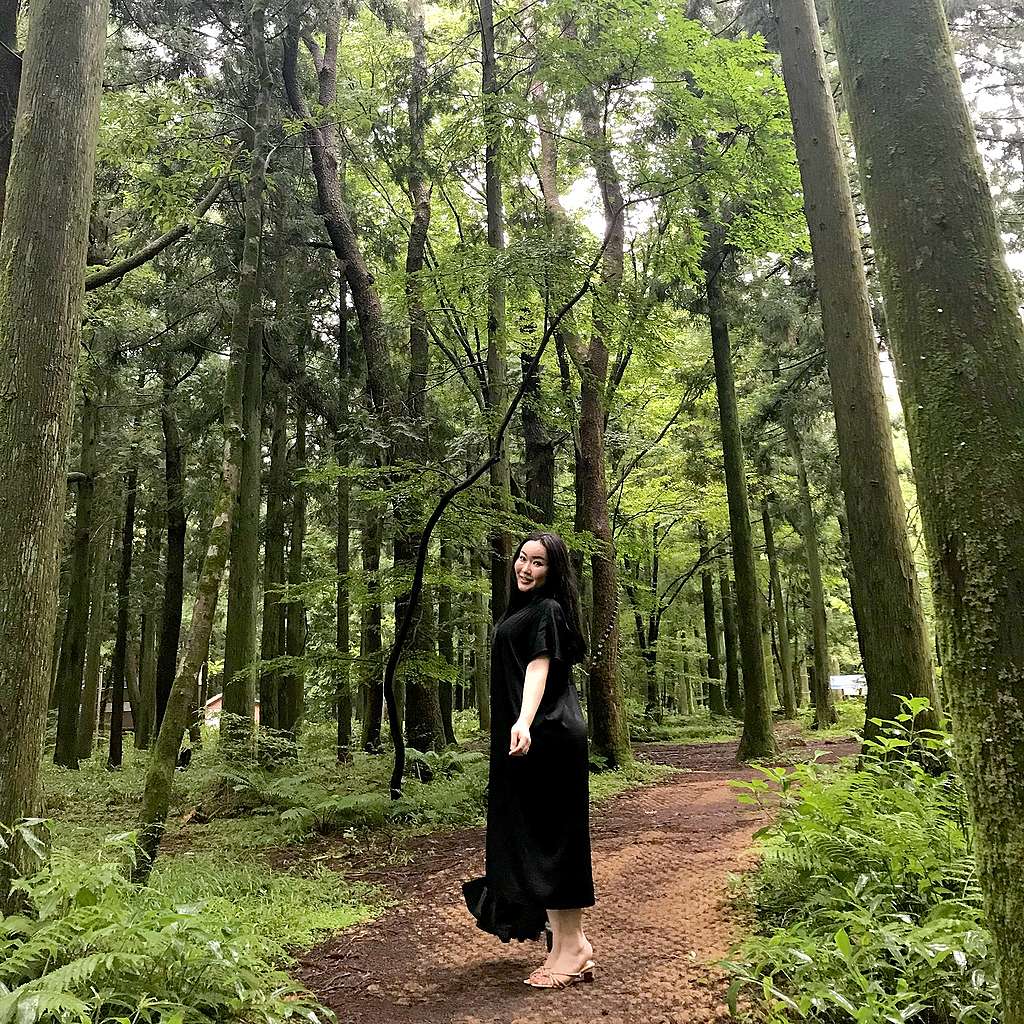
"My name is Yaewon Hwang, and I am an Equity, Diversity and Inclusion Partner for Greenpeace East Asia. I believe that many transgender women are born activists as we've had to fight so hard to fit into a Cisgender-centric society from a young age. We are taught from the moment we were born that everything we are about and that everything we want to be is 'wrong'. We've been made to feel very lonely and isolated from society. What I have gone through has made me broaden my horizons and taught me what the core of my activism should be, and that is love. I will overcome hate with love. I have, and always will be, vocal about what I believe in and what is right, especially when it comes to trans justice.
I believe that conversations about transgender movement have only just started in the last few years. We are nowhere near where it needs to be. People tend to fear what they do not know and transphobia comes from ignorance and not being educated on this topic. Trans people are your neighbors, colleagues, friends, and family. We are no different from you. I believe that we can overcome people's fears with exposure and I am very glad to see so many incredible trans women on many different platforms these days. It really helps cis people to understand that we live and love just like them.
Achieving trans justice starts from our daily lives. If you are a cis person, please be our ally because the trans community needs more allies who will stand up for us and who will speak out for what is right. For example, if one of your family members or friends are making discriminatory comments or jokes about the trans community, please correct them. Let them know that their discriminatory comments are not acceptable, and that we all need to respect each other in order for us to move forward for a better future."
Yaewon Hwang, Equity, Diversity and Inclusion Partner for Greenpeace East Asia






